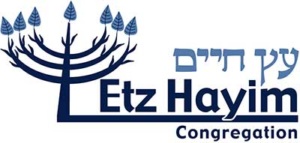This week we read two portions in the Torah, B’Har and B’Hukotai. Parashat B’Har focuses mostly on the laws of the Sabbatical and the Jubilee years. Parashat B’Hukotai focuses on the God’s promise to the Israelites that if they obey God’s commandments, their lives will be full of peace, security, and abundant crops. If they disobey God’s commandments, many curses will fall upon them. This parasha and the Book of Leviticus ends with a description of laws relating to vows and gifts made to the Sanctuary.
In Parashat Behar, we learn about the way in which we are supposed to respect the cycles of the land, as we read about the Sabbatical and the Jubilee Years, the Shemitah and the Yovel. These laws apply specifically to Jewish people living in the Land of Israel. Every 7 years, and every fifty years, we are supposed to let the land rest, reinvigorate, renew itself. We trust in God that we will be able to live and eat. Many years before we knew about crop rotation, and the productive cycles of the land, our ancestors were respecting the land and letting it have its cycles. Nature has its cycles, and we have to respect them and learn from them.
The Shemitah and the Yovel years are supposed to extend our notions of Shabbat to the land. Just as we have cycles and need to respect them, we have to respect the Land of Israel. Last week I spoke to you about the gift of Shabbat when we read on Parashat Emor, (Leviticus 23:3)
3. On six days work may be done; but on the seventh day there shall be a Shabbat of complete rest, a holy gathering; you shall do no melakha in it; it is the Shabbat of Adonai in all your dwellings.”
Haktav VehaKabbalah, a Hassidic commentary, explains this verse as follows:“The root of the word Shabbat means to rest, to halt or cessation. In it we can also include speculation and exploration. The intention of the different meanings woven together is that Shabbat is a time to restore our minds. In God’s eyes, Shabbat is that special time to study, investigate, and meditate.”
Shabbat is the completion of a cycle for human beings, the time that we take to observe and reflect on the past so we can be reinvigorated for the future. We separate that time and make it holy by disassociating ourselves from physical labor to create time for our minds’ restoration. We allow ourselves to create in time so we can respect our own nature and cycles. Since according to the book of Genesis we are made from soil and God’s breath, it is only right that our souls and our bodies have a weekly time for renewal. The earth, from which our bodies were taken, has its cycles, and we need to let it rejuvenate, refresh and restore itself, in the same way that we need restoration and rejuvenation for ourselves.
Shabbat, Shemitah and Yovel are all concepts that Judaism has instilled in us, a way of respecting the cycles of our bodies and of nature. While we in the Diaspora are not commanded to let the land rest at those times, we know that organic farmers do exactly that for their land. Yet we all can sow the seeds and reap the benefits of taking time each week to marvel in the mystery of God’s creation. May we all be able to rejuvenate, refresh and restore ourselves. Shabbat shalom!
Rabbi Lia Bass


